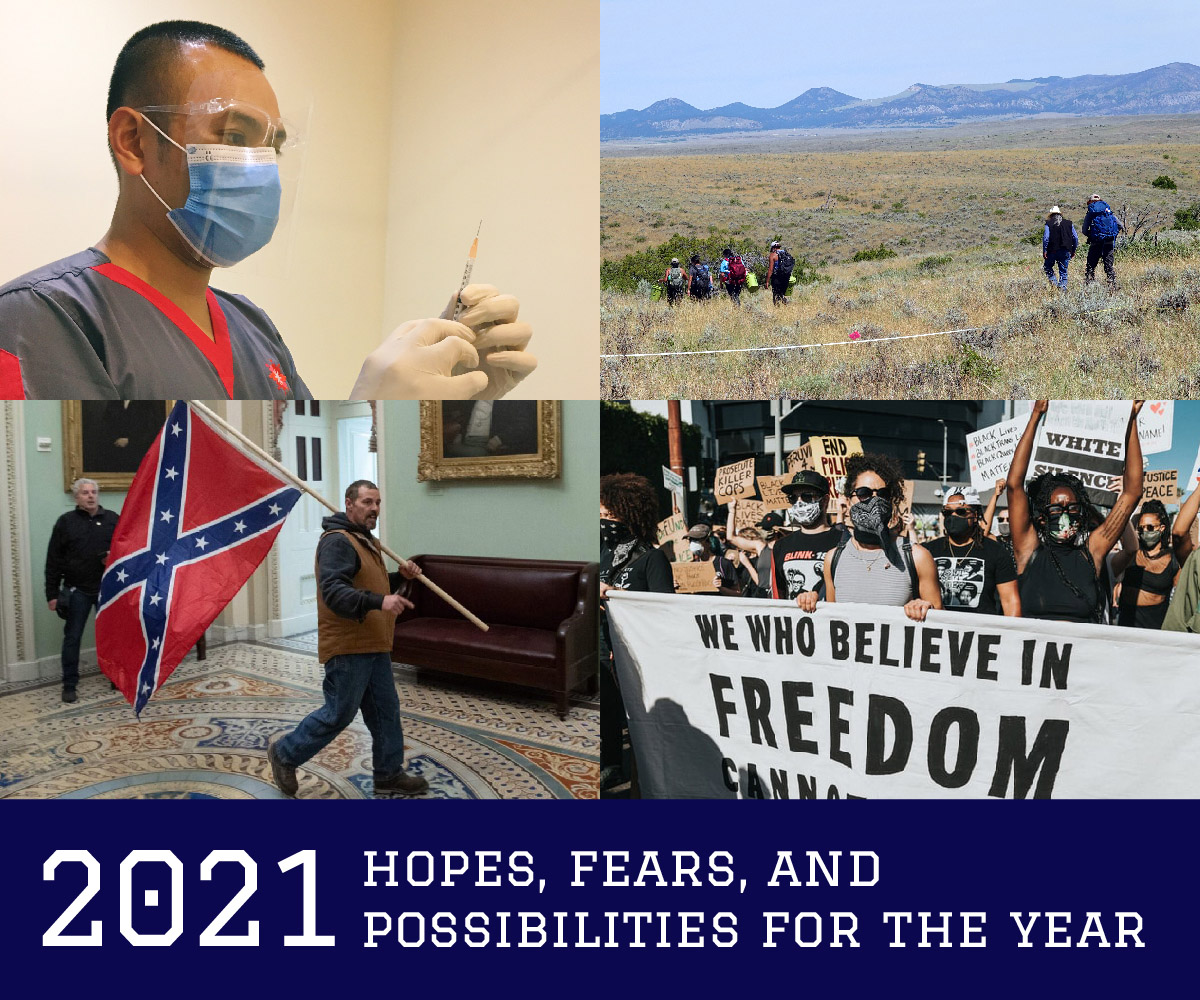
Photo credits, clockwise from upper left: Kristine Wook, Cristina Eisenberg, Nathen Domlo, wusa9.com
By Metta Sáma
Confession. Since late May, I have become an unactivist for racial justice. What is an unactivist? Someone who (read: me) once was an activist and has, in recent times, become inactive, and worst, apathetic to activism.
In the early days of our state’s Shelter-in-Place orders, I, like many parents, begrudgingly became my child’s teacher. I dropped the leaves of our dining room table and shoved it in a corner in our living room, placed the plastic chairs in the yard, and, moving various pieces of furniture from here to there, I replicated my little one’s classroom in our dining room. Every school day, we met at 9 AM to start Circle Time, and at 3 PM, I stopped being teacher and resumed my role as parent. Every month we had a topic of discussion; by May, we were on to anatomy. We learned about the human body, learned to see ourselves as the animals we are. Which was useful when, on a rare car ride, we heard the news of George Floyd’s murder. Except the news didn’t say murder. They said he died in police custody.
The little one wanted to know who died, why he died, how he died.
On our long, morning walks, we once saw a squirrel, head smashed in.
“Is it okay, Mommy?”
“No, Marls. It’s dead.”
“And dead is forever, right, Mommy?”
“Yes, unless you have magic, but this squirrel is dead forever.”
We later had a similar conversation when we happened along a dead mouse. No visible wounds, just dead. We’d picked yellow flowers on our walk and laid some of them atop the mouse, a small offering. The little one knew what dead meant. We had many conversations about the future, particularly the fact that by the time she reaches my age—47—I’d likely be long dead. When she got angry with me, she’d shout, “When I get your age you’ll be DEAD! And dead is FOREVER!” At 3, she wasn’t attached to mortality, so talking about death was simple. So, when she asked me those questions about George Floyd, I answered honestly. George Floyd is dead because the police killed him.
Two years ago, the little one and I had gone to one of her favorite playgrounds. Other than one other family, a white family, we had the playground to ourselves. After a few pushes and happy yelps echoing in the park, the other child ran towards us, excited to see a possible friend. Her father ran up behind her, scooped her up, and placed her in the swing next to ours. It wasn’t long before I turned to talk to him, but saw the gun, tucked into a holster, and his police badge, tucked into his belt, close to the gun. I asked him if he was a police officer. He confirmed. I asked him if he was on duty. He said he was not. I asked him about the gun. He said he carried it because the children across the street were known to harass him. He used the necessary language and tone to make it clear that “those children” who “need to be taught a lesson” were black or brown. We debated the appropriateness and safety of carrying a concealed weapon to the playground, and the ethics of claiming police status, off-duty. He said that he had a right to carry the gun and that if the children bothered him again, he’d show them his gun. They were mouthy and he was tired of it.
Before the protests about George Floyd’s death, I talked with my white friends about this incident. They told me I was overreacting. I contacted the police and told them about the incident. I shared the material on Twitter and tagged the local police department. Unprotected, I contacted the local paper. While my white friends thought I was overreacting, I thought the off-duty officer’s overreaction dangerous and abusive.
After the protests about George Floyd’s death, my white friends pressured me to take my little one to local protests. They were down for defunding the police. Who were these people? I didn’t recognize them; once trigger-defensive about any racially-charged issues, they were now, without warning, taking to the streets. The neighborhood, a mostly white neighborhood, was a Black Lives Matter yard sign fantasy. Suddenly, black lives mattered. But I wasn’t sure if black people mattered to these white people.
Instead of feeling excited or hopeful that these friends, colleagues and neighbors were advocating for black people to be treated with respect and dignity, to be treated as humans, I felt dehumanized. I didn’t want to march alongside them. I didn’t want to engage in conversations with them about George Floyd. They couldn’t even talk about Eric Garner a few years ago. Because they were white, when they said Black Lives Matter, suddenly the world, the white world, listened. A surge of white executives and white college presidents espoused their commitment to racial justice. Institutions with long, current history of racial discrimination. This lip service in the disguise of active-ism that fueled my white friends, enraged me. Instead of continuing with my advocacy and activism work, I did nothing. I became a closed for business sign.
Before Christmas lights were strung up, the BLM yard signs disappeared. The election was over. Safety was guaranteed again. White safety. When President Obama was in the White House, it was very rare to hear white people saying “black lives matter.” During the stresses of Shelter-in-Place, with an election looming, they held up signs, wrote black lives matter in black sharpie on their blue face masks. The January 6 insurgency has taken on the lone wolf (pack) narrative and white people are distancing themselves from those whites in order to resume their raceless lives. Perhaps now I can resume, but only with the advocates who have been committed to racial justice for decades.

